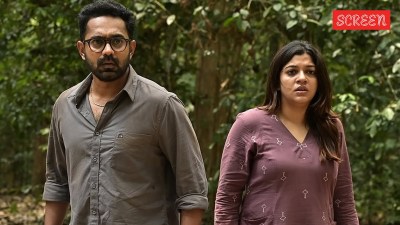Bofors papers may ride smooth on new Swiss laws
GENEVA, December 24: Swiss authorities may be considering sending part of the remaining secret bank documents linked to l' affaire Bofors u...

GENEVA, December 24: Swiss authorities may be considering sending part of the remaining secret bank documents linked to l’ affaire Bofors under a new set of simplified execution laws that govern mutual assistance in international criminal matters. The final set of documents still to be sent to India is expected to link the prominent Indian business family, the Hindujas, to bribes paid by Bofors into secret Swiss bank accounts.
The transfer of some if not all these papers appears imminent. The new procedure gives the country seeking assistance – India – access to those bank documents which both the investigating magistrate and the appellants agree can be transferred without protracted legal disputes. As for the remaining papers, the appellants retain the the right to activate normal proceedings which takes the case through the cantonal and federal court.
The principal aim of this procedure which came into effect last February is to enable countries to begin criminal proceedings without waiting for the Swiss to make a final transfer of all documents which may take years. The main criticism against Swiss laws concerns delays due principally to a duplication of court procedures at the State and Federal levels giving criminals innumerable possibilities to delay action and prosecution.
In Geneva, for example, appellants can first seek to prevent the court from admitting a case and ruling on it and later activate another round against the transfer of papers even if the court finds against them in the first instance. This is happening in the Bofors case with India. In Zurich, on the other hand, both decisions – admitting the case and transferring the papers – are taken at in one go as was the case with the Bofors papers in November 1990.
While The Indian Express has not been able to confirm if this simplified route is being activated for the remaining set of papers, jurist Michel Andre-fels who has shepherded the Indian case through the Swiss courts agreed to explain the law, in particular the simplified procedure.
“This is not an out of court settlement with the appellants nor is it plea-bargaining, but rather a final decision of the judge regarding the handing over of all or a part of the documents,” he said.
Though the law (Article 80 c of the new laws on mutual assistance in criminal matters – IMAC) is clear, an insufficient grasp of it in India in some cases and intentional misrepresentation by others has led to wild speculation about the fate of the remaining documents.
According to it – * The persons entitled in particular holders of documents, information or assets may accept their handing over without formality until the proceeding is concluded. Their consent in irrevocable.
The Bofors-India battle in Swiss courts will go into its eighth year next January. The Swedish arms manufacturer was required to pay up to 12 percent of the $1.3 billion gun contract as bribes to Indians and others. Some of these payments were made in secret Swiss banks accounts. Italian businessman Ottavio Quattrocchhi, former Bofors agent Win Chadha and the Hindujas have been linked through authenticated Swiss and Swedish documents to the bribes and the three put up a stiff fight to prevent the transfer off bank documents to Indian authorities.
Successive appeals by the three have been thrown out by the Cantonal and the Federal court of Switzerland. Last January, the first set of Swiss Bank documents concerning Chadha and Qauttrocchhi were sent to India. There has been no follow up in New Delhi. India says it is waiting for a final transfer from Switzerland to begin prosecution while failing to explain why it has failed to proceed against Chadha and Quattrocchhi where all documents are in.In the meantime, Bofors is back in business in India and New Delhi has yet to ask the company to return the money it paid as bribes.





- 01
- 02
- 03
- 04
- 05


























